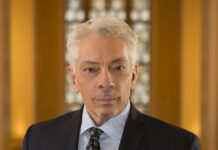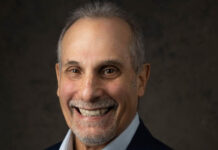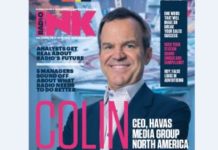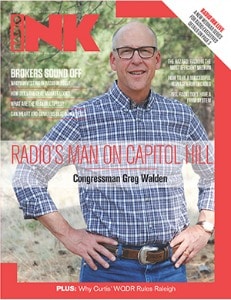
BY EDITOR-IN-CHIEF ED RYAN
Congressman Greg Walden (R-OR) grew up around radio. His father owned an AM station in Hood River, OR, where Walden worked during his high school days. He continued working in radio through college, but then, in 1985, he received a letter from his parents that said, “We’re going camping this weekend. And, by the way, after 48 years in the business, we’ve decided to sell.” Walden, who was working in Washington at the time, realized that was his father’s way of saying, “If you have an interest in the family business, we should talk.”
Walden had been thinking about going into the radio business and even researching stations for sale around the country. It all came together on April 1, 1986, and for a little over $200,000, Walden became the owner of KIHR and KCGB in Hood River.
Walden and his wife were hands-on operators, running the stations and serving the community. Walden says he did everything from being on the air to traffic to sales, and even a little engineering. “I’m also the only chairman of the Subcommittee on Communications and Technology that has ever actually wired in studios and changed out transmitter tubes,” he says. “I don’t profess to be a great engineer, but I learned enough from my father and the engineers we did hire to do the basics.”
Walden believes small-market radio is a lot like being in public office: You’re always in the community, working to get things done, interacting with businesses, and helping the locals. After being elected locally and serving the community for many years, Walden was elected to the House of Representatives in 1998 and has represented Oregon’s 2nd Congressional District ever since. He is the state’s only Republican representative in DC, and his district includes 20 counties in central, southern, and eastern Oregon. Walden puts his small-business and technology experience to work as chairman of the Energy and Commerce Committee’s Subcommittee on Communications and Technology. That means he’s in a position to make a serious impact on agenda items in Washington that will affect the radio industry.
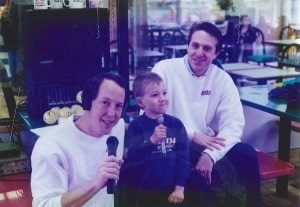
RI: What impact does small-market radio have on local communities?
It is the essence of broadcasting, the essence of service. It’s a lot of fun and a lot of work, but it is very rewarding. A good small-market station that’s well run can afford to provide content, news, information, sports coverage, and entertainment that otherwise would not be made available, and do it in real time. So you really get to know the community, the players. You can have some effect on things. You are also, by the way, the master of ceremonies at most every public event. You are part of the vibrant network that is a small community.
RI: Would you say radio, and the connections and involvement in your community, had an impact when you decided you wanted to get into politics?
Yes, I would say so, because you’re day-to-day involved in public affairs. You are day-to-day involved in charitable work, civic work, and in communications. They all come together, because I think most broadcasters I know are committed to their communities and committed to service, and committed to helping people and helping the community move forward in a positive way. It’s a natural extension for people in those roles to move into other, elected public service roles, because it’s pretty much what you do as a community broadcaster.
RI: Tell us about the transition from radio to politics.
I was elected to the state legislature in 1988. My father had been in the Oregon legislature for six years back in the ’70s. I grew up around parents very involved in the community, both elected and non-elected. So public service is something I was intrigued with as well. It seemed like a natural extension.
Oregon has a citizen legislature; in those days, it only met once every two years, for about six months. It gave me an opportunity to be involved in the community that I had grown up in — actually, the two communities I grew up in, The Dalles and Hood River, and provide that public service while also working at the radio station with my wife.
RI: At what point did you get out and sell the stations?
It transferred on December 1, 2007 — which, by the way, was a good time to have sold anything, before the economy went in the tank.
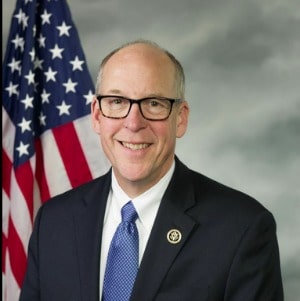
RI: In 1996, deregulation came along. What were you thinking?
I thought it made a lot of sense for broadcasters. A lot of them were struggling. New technologies were just coming online. I think at that time, if my memory serves me right, upwards of half of small-market broadcasters were operating in the black. We ultimately bought two other stations and put another one on the air in that time period. Whether we could have done it before or not, I don’t know. I think it made a big difference. The stations we bought and grouped with could no longer afford Associated Press. They hadn’t had wire service in a long time, or local sports in a long time. They were really struggling.
By grouping up, we were able to completely revamp the operation, bring in new equipment, open up more community involvement and more news coverage, put the wire service back in.
Ultimately, they were simulcasting most of the day. We were able to split up the daytimer and make it a full 24/7 News station, and the FM an Oldies format. And so we actually expanded the content available in the community as a result of our being able to group up. I think that’s what we found after the ’96 act: actually more stations that were more viable with more content in the marketplace than there would have been.
RI: Looking back now, almost 20 years later, did you ever imagine deregulation would be what it is today? And is it still good for radio?
I think the Telecom Act was good for radio. It was hard then to envision what today would look like. I remember, my wife and I went to an NAB conference on broadcast futures; it was in California in about 1994. Ironically, Ed Markey was there, the then-chairman of the Subcommittee on Communications and Technology, as one of the panel participants. Never did I think I would be chairing that subcommittee someday.
But the question went out, if anybody had heard of the Internet. A dozen hands went up. How many had ever been on it? Six hands. They began to tell us about what the future held when it came to the Internet, and I will always remember their saying that we have to realize that the power here is going to be the program, the content — and that stick in your backyard called the tower may not matter in the future as much as it does today.
Well, we had no idea what that meant, with time-shifting of programming and all. You think how the marketplace has changed so dramatically in those 20 years, to where I was getting ready this morning and I’m listening to my old station on the Internet, and to WTOP in Washington, DC. The incredibly complete marketplace for your ears, the competition that has never been there like it is today. It really makes it a challenge.
In this competitive marketplace — satellite radio, iPods, streaming services, and an unlimited number of services online — everything that is out there, it just becomes a more competitive environment. We need to make sure that broadcasters aren’t held back by lazy regulations.
RI: Do you think there needs to be more deregulation, with the new media competition out there for the ear of the consumer?
I think it’s something we need to look at as we do the Communications Act update in the committee. The FCC has really been stalled in their AM improvement docket — you look at some of these issues involving translators. I think it is important for us to have that discussion publicly about what is best for the future of AM, and what’s best for the future of FM, and what’s best for broadcasting specifically so that it can continue to provide free, over-the-air entertainment news, sports, weather, and emergency communications for the communities.
RI: On net neutrality: What do you think about the actual document and rules? And how do you look at the speed with which it was passed compared to how slow the FCC has been on AM revitalization?
First of all, I think the net neutrality rules, as we understand them, are illogical and illegal and unnecessary and an overreach back to an era of monopoly regulation. There is no market failure out there of any enormous magnitude, and yet the FCC surrendered its independence to the White House and did what the president ordered. Now you’re getting to see less investment in the build-out of the Internet. I have heard that directly from people who make those decisions in three major companies: that they are scaling back and will scale back because of the uncertainty. There is a question about rates of return.
I don’t understand how that helps connect Americans. I just think it was the wrong direction. We have legislation in draft form that would prevent any of the bad behavior that should be prevented, blocking pay prioritization, perhaps, and throttling the anti-competitive processes that people are rightfully concerned about, as am I. We can take care of all of that without subjecting the Internet to 1930s-era monopoly utility regulation.
RI: Is it safe to say that this is probably not the end of it?
This will be mired in the courts for years. The last time the FCC attempted to regulate the Internet, it took them 10 months just to make the order public, and it was in the courts for three to 3 1/2 years. When you’re talking about billions of dollars that the private sector invests in building out the Internet every year, if you create this level of uncertainty, they are going to pull back. It’s a natural human behavior when there is uncertainty and money is at risk: You are going to minimize the risk to your money
The Europeans are cheering right now. Literally; I’ve read it. They now believe, because of what three members of this FCC have done in a partisan way, there will be an increased capital flow to Europe to invest in building out the Internet there.
RI: In your opinion, is the FCC transparent enough?
No. They are opaque. They are not transparent. They need to improve their practices. They need to come into the 21st century when it comes to transparency, public processes. I begged [FCC Chairman Tom Wheeler], “Make your draft order public. You have 4 million people that have weighed in on this topic, and you legislate in secret, behind closed doors. Three unelected people are going to decide the future and the fate of the Internet. Can’t you at least make the draft order public? You will benefit from it.”
I have always felt, in my time in elected office, that the biggest mistakes in legislating get made when you move too fast and too much in private. There is enormous public policy benefit to putting forward what you intend to do. Because, guess what? You may not be the smartest guy on the planet. And you might have missed something, so someone, who may agree or disagree with you, is then able to say, “You might want to look there again. You’ve got a little problem over here.” And you can fix it.
That’s how a good, well-run public process works. You don’t have that with the FCC. I’ve passed legislation a couple of times in the House, and hopefully now we can get it through to make the processes of the FCC more open, more transparent, and more public-friendly than they are today.
RI: AM revitalization started so long ago, and you can’t even get it on the FCC agenda. What can be done to get the commission to move faster on that?
It is an enormous frustration to me that I’ve expressed personally and directly to the chairman of the FCC that they continue to drag their feet on AM improvement. I don’t understand why. It’s not that complicated. I’ve been told that there is pretty much agreement among the commissioners on it. And it’s so important to AM broadcasters and their ability to move forward in a more effective way. Wheeler tells me he doesn’t have the time, money, or resources to move forward on it.
My gosh, they sure move at lightning speed on taking control of the Internet. I don’t understand why something as important but fairly uncomplicated as AM improvement is somehow out of their fiscal reach. I don’t get it. It is something we are going to be pushing on hard.
RI: Is there enough time to save AM? Do you think it will still be relevant by the time this all gets worked out?
I hope so. I think so. If you believe in diversity of content in the marketplace, it is our responsibility to keep AM broadcasting alive. Where else, besides in radio, in AM and FM especially, do you have over-the-air entertainment, education, a complete emergency system for communication, all for free? The FCC should be doubling down, like Commissioner Ajit Pai has said, to keep that vibrant communication link available to the public, and we ought to be moving forward on this. Mr. Pai has been a terrific advocate of the AM Improvement Order, and I share the goal of getting this done and intend to put pressure on the commission to do the job.
RI: What are your thoughts on the FM chip, and getting it activated by all the carriers?
I’ve been leaning in on this one for years, to some avail. Certainly, my friend [Emmis CEO] Jeff Smulyan has been very active on this front and has accomplished more than anyone else, in the partnership that he’s been able to put together with Sprint. I’m going to continue to cajole the carriers to try to turn on the FM chip. It’s there, but the market demand isn’t going to show up until it is actually available. And they will tell me, “Oh, it is available.” But it really isn’t.
I understand it is to their benefit if they can sell you data to get information, as opposed to allowing you to get it through the chip. But with the spectrum being as valuable and limited as it is, we should be looking for efficient uses of spectrum. We know the technology exists to turn on the FM chip and let people listen to FM radio on their phones.
Now I much prefer the marketplace work this out, and it is, to a certain extent, but at some point, we don’t need to play this game. The last thing I think the carriers want is for us to lean in and mandate some sort of technology. I don’t want to do that. I think they understand that. I think they need to do more to make the FM chip a viable communications tool in everybody’s vault.
RI: It almost sounds like you’re saying if they don’t get on board, there will be, or could be, a push to mandate it. Do you have the support for that?
I’m not a big fan of legislating technology. This sort of shell game needs to stop. They need to turn it on. It’s available. It’s technologically possible. It’s used in other countries. There’s no harm or foul. It doesn’t affect your phone.
I have sat through some discussion with engineers who try to tell me you can’t try to do this or do that. I know just enough to call them on it. We now know there are phones available that have the FM chip, but until it is ubiquitous, you’re not going to have customers that are necessarily going to demand it. Every phone should have the FM chip available. That’s my view.
RI: What are your thoughts on artists wanting radio stations to pay to play their songs?
As an old small-market broadcaster, I worry about the effects of that financially. Radio is a little different, in the sense that the airplay that artists get is to their benefit as well. So there has always been a special relationship there, between the value that artists get when the records are played and the benefits the stations get.
From a public policy perspective, you have a collision between broadcast television and broadcast radio. On the one hand, television rightfully demands fees for their programming to be played by somebody else. On the other hand, radio resists that same concept. Somewhere in here, I think, with online music services and satellite services paying performance royalties, the pressure is only going to grow on terrestrial broadcasters. You can just hear it. You can see it. It’s an issue that seems to be shifting a bit now. I think broadcasters have a pretty strong grassroots force that pushes back effectively, and the NAB certainly has. But it continues to be a live issue in Congress.
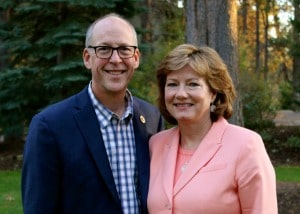 RI: So, if you were a betting man, would you say that radio is going to wind up paying something, somewhere down the road?
RI: So, if you were a betting man, would you say that radio is going to wind up paying something, somewhere down the road?
You already see some agreements being made, with iHeartMedia and their special agreements. My hunch is, if you really shined up the crystal ball, you’d see a situation where maybe major broadcasters end up paying and smaller broadcasters are exempt. I’m not certain what that threshold is.
RI: When you saw Pandora try to buy a radio station, what did you think?
(Laughs) Oh, my, how complicated the communications world has become. That’s part of this convergence in how we get our media now. When you look at what’s happened on the video side and all the over-the-top video content, from Apple TV to just streaming something on my iPad, it gets back to the beginning, when radio was so ubiquitous. You took it with you wherever you were, and you heard it on the device you had, and that’s the way you expected it, once we got transistor radios.
And you are seeing that with video. Now your phone is your camera, it is your video device, and it is your audio device. That’s where the whole world is changing, and part of our job is to look at that marketplace and try to rationalize how it’s regulated and keep pace with how it’s changing — which is why allowing the marketplace to resolve many of these issues is the most forward-looking way to deal with them.
RI: There’s a lot of chatter about the Communications Act rewrite. Do you see any positives in that for radio?
I hope so. I think, if nothing else, maybe we can get the FCC to move forward on AM improvements. I think there are other issues relative to improving the speed at which the commission acts and the transparency with which it operates. I think, with my own case, I waited 10 years for approval of FM translator applications. And when they were approved, we had 30 days to go perfect them. This is the sort of behavior by the FCC that stifles companies, and just makes you pull your hair out. It’s unnecessary.
There should be a cleaner, clearer, faster process than a 10-year wait for a 200-watt translator. How about contest rules? When you think about how announcers have to go at warp speed to detail all these rules on air, why not allow them to be posted online? There are things like that, that we should recognize can be communicated in a more effective, less intrusive way.
The other thing to keep an eye on is making sure we continue to have deductibility of advertising on an annualized basis. There are some proposals that get floated around to make you treat advertising as a depreciable expense, so you would string it out over five or 10 years, perhaps. That saves Treasury money, but it costs your business. That is one that we will continue to push back on. Advertising is a huge sector of our economy, part of the lifeblood of the broadcast industry, especially in radio and TV, where you don’t have any other real revenue stream. Also, public file issues could be simplified.
RI: Knowing radio and Congress, if you were to talk to owners and managers reading this, what would you say to them?
They have a unique opportunity to impact policy makers, because a lot of us are in their stations on a regular basis, or want to be on the air as politicians on a regular basis. Come out of your general manager’s office and go talk to the candidates and the incumbents when they come through. Presume they know nothing about your business — how it’s operated, how it’s funded, how it works — and take time to explain it. I’ve been stunned over the years by how little my colleagues know about how radio works. Literally, you could explain pre-recording, and how the liners drop in, and why you do it the way you do it, and how it has actually expanded, through automation, the ability in smaller markets to maybe go 24/7, when they used to sign off at night.
There’s a wonderful list of opportunities for broadcasters to educate public policy people about just how important that communications channel is and how important your station is in your community. Take advantage of that, even if it’s only two or three minutes when members of Congress come in to use your stations. It really, really has an impact.
RI: What are your three favorite radio stations?
You’re going to get me in trouble. I’ll stick to formats, how’s that? News, my hometown station, and Classic Rock, for entertainment.
RI: What radio or audio apps do you have on your phone?
I have a number of them, from iHeartRadio to TuneIn to podcasts. Depending on how I have them configured, I can just go to the station and listen in. Like this morning, I was listening to our old station back in Hood River. They do a great job on local news. I will just tool around as I have time, and, of course, in the car.
RI: How much longer do you think you’ll want to be in Congress?
I don’t know. I enjoy the work, and as long as I feel we are making forward progress and making a difference, then I would like to continue. But I always take it two years at a time and evaluate it, because it’s a lot of work. It’s like having three or four different businesses, because what you do in Washington is sort of a full-time job, and then for me, in Oregon, it is a full-time job in a district that is larger than any state east of the Mississippi. You are just constantly on the road. I like that. I like meeting with people. It’s the old Eagle Scout in me, trying to leave the campsite better than you find it. I like to problem-solve. As long as I feel I am able to do that, and as long as my constituents think I am doing a good job, than I will probably continue, but we will see.
RI: Do you like politics better than owning radio stations?
Oh, I don’t know that I would say that. There are similarities. You are still out in the community a lot, solving problems, trying to leave the campsite better than you find it.

